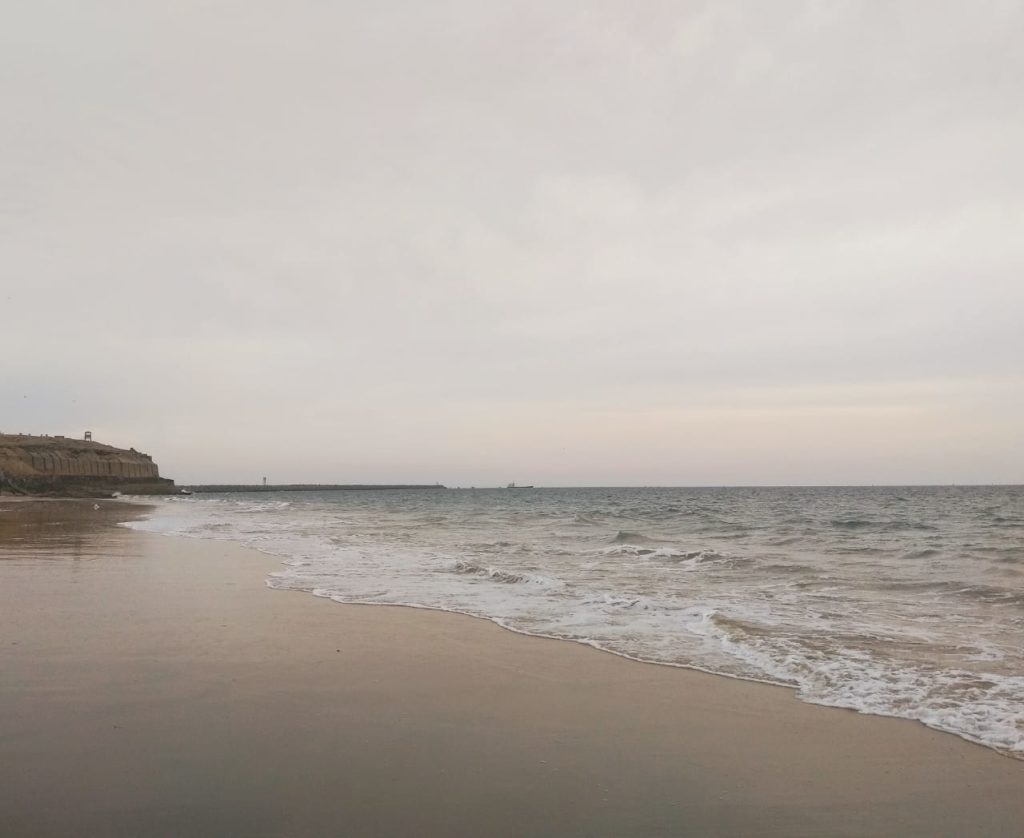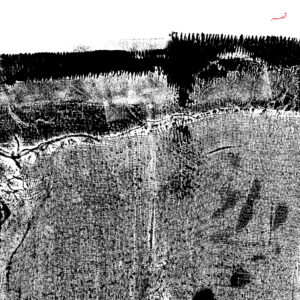
It’s blistering hot today, even by Karachi’s standards.
She looks at her phone, steering her car out of the office parking lot; 41 degrees Celsius after 6 pm. It’s almost monsoon but there is no sign of rain yet. She looks at her phone again, swiping—an obsession: London, 25 degrees—light drizzle. New York, 30 degrees—clear. Copenhagen, 24 degrees –clear. Paris, 26 degrees—cloudy. Toronto, 27 degrees—windy. Lahore, 38 degrees—dark clouds. The AC is on full blast but her perspiration from walking out of her office towards the car hasn’t dried yet. She has a 2000 Corolla – passed on to her from her father – so she can’t rely on its air conditioning.
Only half an hour. She assures herself. Half an hour of every day. Only, it’s never half an hour.
Karachi traffic makes sure you are never on time. Even though the route to her house from work would take twenty minutes in an ideal situation, she would only be home after 7 pm.
She bites the inside of her mouth while checking her phone—6:09 pm, and she has only reached Mai Kolachi Road. The traffic moves slowly; motorcyclists zigzagging their way through gaps between the cars, making sure to look inside, if the driver is a woman. She curses, turns on the radio and changes stations impulsively. The traffic moves. She picks up her phone again and calls.
‘Hello. Yes. I’ll be a little late.’
Pause.
‘Yes, you know as always.’
She smiles, embarrassed.
A song starts playing on the radio.
‘Just take care of him for a little while.’
Pause.
‘Yes, it’ll just be another, ten minutes?’
She reassures the person on the other end of the phone, looking at her watch.
‘I’m hanging up now. See you soon.’
A horn blazes loudly from behind. The call ends.. The driver in the car behind her makes sure to give her a rude glare as he drives past.
//The sun sets behind the wings of the migratory birds
while they leave this route, the desert too cries for the drifting birds//
She has never heard the song before. But her fingers begin to drum unconsciously on the wheel to the sweet music of the acoustic version. The car stops at the red light near Boat Basin roundabout. She looks at her watch again, then looks around till there’s a knock on her window. A little girl, dressed in an orange poncho—rubber wiper in one hand and foam liquid in another—stands at the window, smiling. She smiles too, rolls down her window and gives her some coins and color pencils she had reserved in the glove compartment for her.
‘Did you pray for me yesterday?’ she asks.
‘Just like every day baji*.’ The little girl smiles.
‘Pray again tonight.’
The little girl shakes the stash of coins, nodding vigorously, and runs toward the footpath before the herd of vehicles makes a beeline to cross the road, as the amber light blinks.
Her car follows suit. 6:14 pm. The sky has started to turn a deeper shade of blue. I’ll be there by 6:20, she tells herself.
You smiled, met and eventually left for your town / for me, tears still flow off my checks in reminiscence
The song distracts her. It’s a Sindhi song—her mother tongue. When was the last time she had heard a Sindhi song? Probably at her sister’s wedding –five years ago. But those were festive songs. This one is about a distraught lover whose beloved has left him stranded in his own land, afresh with memories.
She takes a U-turn towards the road that leads to Dou Talwar*. Taking another quick glimpse at her watch, she subconsciously starts making a list of things that she has to get from the grocery store: milk, bread, eggs, baby wipes, diapers, oatmeal, what else?
She takes a right from Dou Talwar towards the residential area.
//What’s the use of meeting the homeless beloved in the land of lovers?
this society forcedly banishes lovers since forever//
Her eyes glisten. There have been countless times in the past year when seemingly meaningless things have triggered the strongest emotions in her—anger, sadness, annoyance, happiness, laughter. Books that she had read long ago, songs she had listened to as a child, had suddenly become more meaningful. What she would dismiss earlier as mundane have now become patterns that shape her emotions consciously or unconsciously. She does not understand if it’s the language of the song or the words that make her cry. But she does not dismiss the emotion.
She takes another right turn and comes to a halt in front of a large two story house—with terraced windows overlooking the street and a patch of lawn with tall coconut trees—that operates as a daycare for children up to three years. She rushes out of her car towards the locked gate. 6:20pm. Twenty minutes past the official time of the daycare. She made it on time. She rings once, twice, biting the inside of her mouth, cutting the already bitten skin in process. Blood rushes in. It hurts but she doesn’t realize it. She swallows the sour streak of blood.
She peeks from the gap between the wrought iron gates just as someone walks towards it. She rushes to stand right in front. The small door of the gate opens and a girl not much older than her stands holding her sixteen month old.
‘Fatima. There you are.’ The girl says.
The baby smiles looking at his mother and holds out his hands. She takes him in her arms kissing both his cheeks.
‘Thank you so much for today. And I’m really sorry this happened again.’ It’s as if she had rehearsed her lines. ‘I was stuck-‘
‘I know, you’re stuck in traffic every day. As long as it’s not later than 6:30, it’s fine for me.’ The girl smiles.
‘Thanks.’ she beams. ‘I got you something –and doesn’t happen every day!’ She runs toward the car and reaches in for a box of cupcakes from the side of the passenger seat that she bought for herself from the office kiosk.
‘You know, you’re one of the very few people he trusts, so this is from him.’ She looks at her son and then back at her. ‘I must rush. Loads of chores to do.’ She says in a sing-song voice—a tone that takes over her whenever she’s feeling guilty.
She hears a loud ‘thank you’ from behind and smiles.
The baby coos and fusses with Fatima’s untied hair, pulling at them and breaking some in the process. She kisses him again and carefully fastens him in the backseat.
She gets back behind the wheel, and out of habit, checks her phone—6:29 pm, 38 degrees, clear sky—and turns the ignition. It’s almost maghrib*. Folklore says it’s the time when all supernatural beings descend from the sky. When she was little, her phupho* would tell all the cousins not to play outdoors after maghrib, ‘djinns are out there looking for children’, and they would all laugh and run around the large courtyard of their grandparents’ house, making scared ‘ooooooh’ sounds. But of late, Fatima too has become superstitious. Probably having your own child makes you weak in ways you never imagined before.
But having her own child also gave her strength in ways she could not fathom.A child born so tiny she was scared he would slip away from her arms; her child, who was born a whole month early rendering him critically hospitalised with a month to recover.
Jugnu came into her life the night she learned, from a friend, that her (now ex) husband—who had been missing for weeks—had married someone else and was living in Lahore after two years of abusing Fatima. The pains had started right after that fateful phone call late that night. But she did not ask for help. She would drive to the hospital herself, walking to the entrance until she saw an attendant coming towards her, and fall unconscious.
She was weak and broken. But what gave her life was her child, her miracle. After fighting for a month in an incubator, her baby, underweight and tiny, lived. She knew that it was a sign that help had been sent her way. Help that she cried for night after night after he would abuse her, rip her soul apart, and apologise the next morning while crying at her feet. She would forgive him. Not because she knew it would get better, but because she felt sorry for him.
But the moment she saw her baby, looked into his big round eyes, his little pink face with its little button nose, the way his little fingers wrapped around hers, she was overwhelmed with so much strength and love that she knew she could leave anything in the world behind.
The next twelve months, now buried deep within the folds of her memory, were an unending battle of trips to the court with her father; little baby in tow, arguing with men from every echelon, justifying her decision, answering their accusatory stares with her unwavering resolve, then taking her son to a new hospital every day for various diagnoses for his slow growth. Each day would end in her falling asleep, debilitated, after having applied for every kind of desk job—it did not matter, with the lights turned on as her baby slept beside her. With an old father at home, a married older sister living thousands of miles away in another country, and a mother having passed away: Fatima Qureshi, only 24, once Fati, the youngest child of the Qureshi household, was suddenly the head of their three-member family.
But soon it seemed to Fatima that her decision was not working out. She was failing miserably in every battle—her baby’s health showed no signs of improving: he was constantly ill and doctors were no help in diagnosing his condition. Her trips to court were inconclusive: having to wait every day in the long, sweltering brown-bricked corridors only to learn that her hearing had been moved to another day, another week, another fortnight. Her husband’s calls would not stop, warning her to change her decision, later whimpering about how he had made a mistake marrying again. Her job hunt was inconclusive. She would keep checking her phone for an email, a text, or a call that she may have missed, but it looked like no one wanted her. There were doubts and uncertainty, but mostly there was fear—of losing, of failing herself, her father, and her son. She would sit in a different hospital, different clinic every day, drawing scenarios in her yellow notebook, scratching some, redrawing them, until the pencil would tear through the paper.
But then, the calls came.
Getting ready for her first interview, she realized she couldn’t remember the last time she had looked in the mirror. For someone who kept her hair in a short bob, it now fell over her shoulders. Dark circles had enveloped her eyes and her eyebrows had not been touched since she left her previous home. To look presentable, she wore her big, round glasses that would—maybe—hide her dark circles and overgrown brows and put on a light blue Shalwar Kameez as the most convenient formal attire. It did not work out.
More rejections followed.
She lost more weight; drew more scenarios in the hospital while her baby, now four months old, went through more medical tests and her father, who often accompanied her, calmly read a book by her side. It felt as though her life had come to a standstill encapsulated by disappointments, rejections, failures and losses.
When drawing scenarios became too mundane, she would swipe through all the cities on the weather app that she had either visited as a child or once wanted to travel to: New York 25, Copenhagen 26, Paris 28, Chicago 27, Toronto 25, London 28—each city holding a banner of its temperature, wind speed, humidity and a forecast of what the next three days would look like, something she could not vouch for at that time.
One of those days the doctors, after conducting their comprehensive neuro-imaging tests told her that her son had Cerebral Palsy, a disorder due to premature birth, that affected his growth and muscle control. It wasn’t as serious as it is in some children despite his slow physical growth and muscle weakness, one of them told her lightly, in an attempt to reassure her. There were strong chances that it would not affect his mental abilities.
Strong chances. She thought about those two words.
That day was the first time her father drove them home.
It was also the first time she locked herself in her room and cursed the man she had been married to. For everything he had done to her—rape, verbal, emotional, and physical abuse; but more than anything, he had convinced her into believing that she deserved no one but him. For all the nights in the past few months she had been strong, her courage came crumbling down that night. While she cried silently, her baby slept peacefully unaware in the same room, hungry yet uncomplaining.
Fatima did not wake up early the next morning like she had gotten into the habit of doing for months. Her father did not attempt to wake her up either. It was her baby who did. Nursing her son on the sofa, she saw a piece of paper slipped from under the locked door.
My heart bleeds
when you cry,
for a mother gives not birth to her baby
to see him endure,
for a father gives not his love
to see her battle every day in the face of adversity.
When your tears flow
My heart writhes in pain
so excruciating,
it tears apart the sky
Like lightning.
But know this my baby:
You’re not a metamorphosis of a butterfly
For she undergoes a growth spurt—a momentary feat.
You’re the conversion of coal—
pressed, heated, cut, secured;
and it will take time for your raw wounds to heal—for the diamond to cool
but my child when you do,
the strength it will give you
a million metamorphoses will envy the birth of you.
Baba
Her father, the retired editor of a publishing company, who had always preferred to edit and read rather than write, chose the silence of his words over speech. Who had always been there for her, sitting right beside her in court hearings, scorching corridors and hospital waiting rooms, silently reading, never saying a word, just being there. Weary but composed, old but patient—had written to his daughter.
In the moments of dark gloom, when the doors were a mirage of solid walls, getting out seemed impossible. Sleeping seemed easier than waking up. Quitting seemed easier than overcoming more obstacles. But then, there was always a blinking light—although small and broken—intermittent yet consistent; this light was the route back home.
Fati’s route back home was her father.
Her strength did not come from within, it came extrinsically: from her father and her son. Every day while she applied for various jobs, her father would carry the baby to his room silently and read his book out loud, baby in his lap. Her son, after four and a half months, laughed for the first time one night after Baba carried him back to Fati’s room. She called her son Jugnu that night, a firefly.
Fatima slowly opened up to her father—a confidante she never knew she had. She would tell him about her daily struggles—the doctors were hopeful about Jugnu’s development, the lawyer had given her a final date for the decision, she was waiting for the final call from a telecom firm; and he would tell her about the book he would be reading.
The day she got a call from the telecom firm to join the next week, she cut her hair short and shopped for herself. It was an entry level job with a meager salary but she had to start somewhere with no experience in the past despite a good education. She met the little girl on Boat Bain roundabout signal on the morning of her first day at work. The girl giggled when Fati gave her money, and asked to pray for her. When the little girl saw her in the evening on the road again, she came running towards the car, knocked on the window and told her smiling shyly, ‘Baji I prayed for you just like you said.’
Soon it became a routine—the two of them sharing bits of their lives, each in their own way. Fatima would see little Layla every day in the evening at the same signal, reminding herself of the monotony of life. Layla would tell her about her family of ten siblings while Fatima would buy her chocolates and M&Ms, coloring books and pencils, and ask Layla if she prayed for her.
And so started her journey back to life, one day at a time. In dropping Jugnu early in the morning when the streets are empty, except for disposed litter and flying plastic bags; in learning to socialize all over again with those who had ebbed away in her former universe; in racing against the Karachi traffic while listening to local radio; in picking up her son and listening to his coos, looking for clues to his first words; and in buying groceries for home, sometimes a forgotten toothpaste, other times milk, bread, and diapers.
…
Today, while she buys groceries, with Jugnu in her shoulder-sling, at a store near Bilawal Chourangi, Baba calls.
‘Yes baba.’
‘Just called to remind you to pick up the book for me,’ she hears him smile.
‘I know you think that I’d forgotten to pick it up but I have not,’ she’s lying, she knows, and he knows that too.
‘Like I said, just reminding,’ he tells her.
‘Sorry I forgot the name of the book,’ she is laughing now.
He laughs too. ‘The Goldfinch by Donna Tartt. I’ll text you the name.’ He knows she wouldn’t remember the name.
‘Yes please. Oh wait baba, do you need anything else? I’m at the grocery store,’ she says, as she picks up the milk cartons from the shelf one by one, putting them in the cart.
‘Hmm. Nothing as such for me. Jugnu needs some baby lotion though’, she can hear him flipping the pages of the newspaper—his late evening ritual when the last day’s news has expired.
‘I had almost forgotten. Thanks,’ she moves towards the skin care section. ‘I’ll be home soon.’
‘You better be kiddo. I’ve made daal chawal tonight,’ baba says.
‘Can’t wait!’
She knows it’ll take her another fifteen minutes to finish grocery shopping, and another ten to pick up the book from the bookshop across the road before leaving for home.
But for months now, Fati has been home.
Baji – Elder sister
Dou Talwar – Two Swords
Maghrib – Prayer time at dusk
Phupho – Paternal aunt



